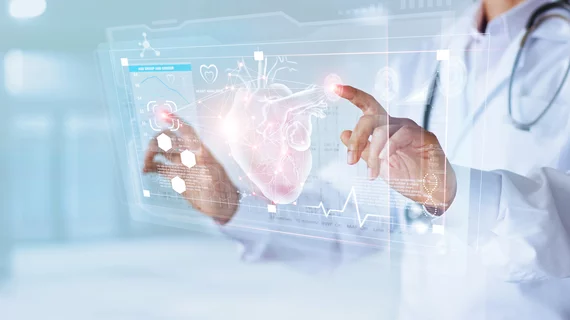FDA clears 1st AI-assisted cardiac MRI software
California-based tech company HeartVista announced Oct. 29 it had received FDA clearance for its AI-assisted One Click cardiac MRI acquisition software.
The One Click Cardiac Package software, first introduced by HeartVista one year ago at the Radiological Society of North America’s annual meeting in Chicago, aims to streamline cardiac MRI (CMR), which, while a hugely useful diagnostic tool in cardiology, has been limited in use. Cardiac scans can be longer than typical MRIs and require trained technologists and higher costs than many centers can manage.
HeartVista’s software uses AI-assisted tech to prescribe standard cardiac views with a single click, producing images in as little as 10 seconds while the patient breathes freely. The software also leverages a novel neural network that helps detect artifacts on scans and alerts physicians when image quality is below the acceptable threshold.
The recent FDA clearance is based on the results of the multi-center MR-INFORM study, published in the New England Journal of Medicine in June. The study found that non-invasive myocardial perfusion cardiovascular MRI was noninferior to invasive FFR—the industry’s current gold standard—in guiding treatment for patients with stable chest pain. It also led to 20% fewer catheterizations.
“HeartVista’s Cardiac Package is a vital tool to enhance the consistency and productivity of cardiac magnetic resonance studies, across all levels of CMR expertise,” Raymond Kwong, MPH, director of cardiac MR imaging at Brigham and Women’s Hospital, said in a statement.
HeartVista is expected to formally present the newly cleared Cardiac Package on Dec. 4., at this year’s RSNA meeting.

